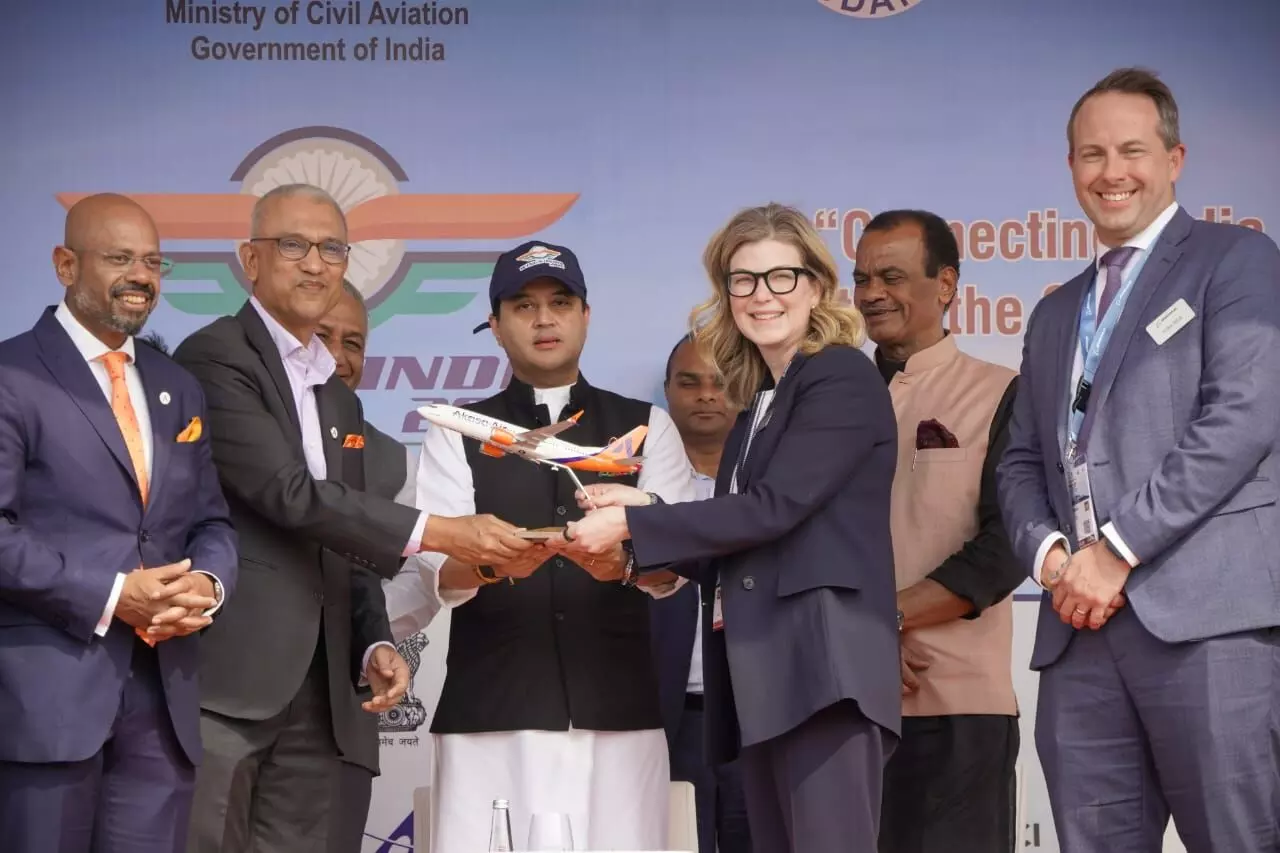‘Make in India’: Airbus partners with Tata to build aircraft components, launches pilot training with Air India
The Tata Airbus Training Centre will offer A320 and A350 flight training to some 5,000 new pilots over 10 years
By Newsmeter Network
Hyderabad: To fulfil its ‘Make in India’ commitment, Airbus has signed contracts with Tata Advanced Systems Limited (TASL) and Mahindra Aerospace Structures Private Limited (MASPL) to procure commercial aircraft components.
Airbus also entered into a joint venture with Tata-owned Air India to launch a world-class pilot training centre in Gurugram, Haryana, as part of its commitment to ‘Skill India’.
TASL and Mahindra Aerostructures will now begin manufacture of metallic detail parts, components and assemblies for Airbus’ A320neo, A330neo and A350 programmes. The two companies are already among more than 100 India-based suppliers that provide components and engineering and digital services for various Airbus programmes.
Airbus partnership with GMR Aero Technic in Hyderabad
The Tata Airbus Training Centre will offer A320 and A350 flight training to some 5,000 new pilots over 10 years. The sprawling 3,300 sq mt centre will be equipped with 10 Full Flight Simulators (FFS), flight training classrooms and briefing and debriefing rooms as part of the complete Airbus Flight Training Device setup. The training centre is due to be operational starting early 2025 with the initial installation of four A320 FFS. The Tata Airbus Training Centre will offer courses approved by the Directorate General of Civil Aviation (DGCA) and the European Union Aviation Safety Agency (EASA).
Similarly, Airbus has also partnered with GMR Aero Technic to offer Aircraft Maintenance Engineering training courses at the latter’s facility in Hyderabad. Airbus will provide training material such as trainee handbooks, examination database, online access to Airbus customised training modules and Airbus Competence Training (ACT) for the Academy media package. Airbus will also train GMR instructors and provide a continual assessment of the training centre.
Strategic resources for aircraft building
Speaking about the partnership with TASL, Rémi Maillard, president and MD of Airbus India and South Asia, said, “Airbus has made ‘Make in India’ front and centre of its strategy in the country. Our ambition is not only to support the growth of the Indian commercial fleet but also to grow the complete aerospace ecosystem here – and that includes developing and strengthening manufacturing and engineering capabilities from our Indian partners.”
Airbus’ efforts to evolve the wider Indian aerospace ecosystem include the building of a Final Assembly Line for the C295 military aircraft in Vadodara under an industrial contract with TASL as well as training commercial pilots and maintenance crew.
Today, every Airbus commercial aircraft has components and technologies made in India, including the A220 Escape Hatch Door and the Flap Track Beams for the A320neo and A330neo aircraft. Currently, the company’s procurement of components and services stands at about US$750 million every year, and the latest round of contracts will add significantly to this.
In need of talented pilots
Airbus is also collaborating with the Vadodara-based Gati Shakti Vishwavidyalaya (GSV), Indian Institute of Technology in Kanpur (IIT Kanpur) and Indian Institute of Science (IISc), Bengaluru, to groom talent for the Indian aerospace sector.
“As the fastest expanding aviation market in the world, India will need 41,000 pilots and 47,000 technicians in the next 20 years to support this growth. The pilot training centre with Air India and the maintenance training partnership with GMR are a testament to Airbus’ commitment to developing human capital. Airbus is directly investing and operating training capabilities to ensure that the growth of the Indian aviation industry is accompanied by adequate skilled manpower that is readily available,” said Rémi Maillard.